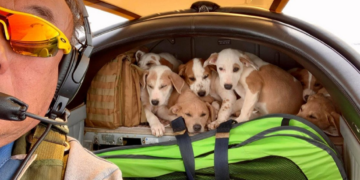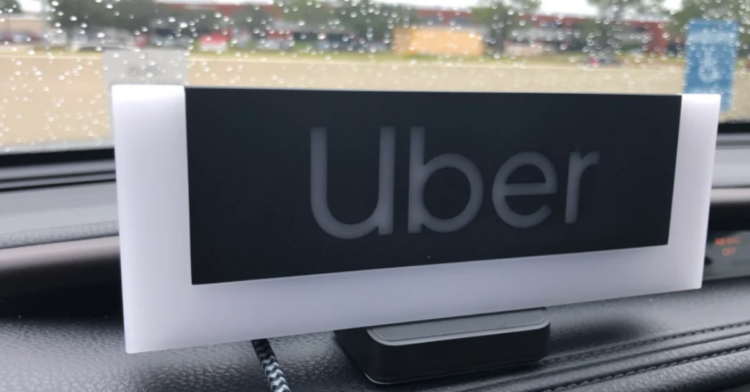In recent years, ride-sharing services like Uber have been the subject of widespread public concerns that they could monopolize transportation markets and the individual companies behind these services have also taken heat for their labor practices.
But while these controversies are widely known, it’s perhaps not such common knowledge that — according to the BBC — Uber in particular was once the subject of a lawsuit by the National Federation of the Blind due to its policies regarding guide dogs.
But while the company agreed to ensure that drivers knew they were legally obligated to serve people with guide dogs when the lawsuit was settled in 2017, one more recent case shows they haven’t been as successful in doing this as it may have seemed.
Between 2016 and 2018, San Francisco resident Lisa Irving reported being denied rides by Uber drivers 14 times.

As the BBC reported, this persisted no matter how many complaints she filed with Uber and repeatedly left her feeling unsafe on multiple occassions after she found herself stranded late at night.
In one case, the driver falsely claimed to have arrived at the intended destination and cut the ride short.
In Irving’s words, “I felt demeaned, humiliated, devalued, embarrassed, angered, frustrated and violated.”
In addition to the ride denials, some drivers were also verbally abusive towards Irving and her service dog Bernie (not pictured).

According to CNN Business , one particularly extreme case of this also left Irving in an unsafe situation.
As an arbitrator put it in their decision, “[The driver] yelled at her to get out of his car at least fifteen times, at one point pulling over to demand she get out in a dangerous area, making her feel helpless by his intimidation and threats.”
Unfortunately, this pattern of ride denials would have some significant consequences in Irving’s life.

As CNN Business reported, these cancelled rides led Irving to be repeatedly late for work, which she alleges “contributed to her separation from her employer.”
But while Uber didn’t debate the facts of Irving’s experiences, they did maintain that they weren’t liable for their drivers’ violations of the Americans with Disabilities Act.
Uber’s defense hinged on the fact that they consider their drivers independent contractors rather than traditional employees.

In documents obtained by The Verge, however, the arbitrator decided that Uber was just as responsible for ensuring that its drivers complied with the ADA as the drivers were for their own behavior.
To illustrate this, the arbitrator outlined Uber’s ability to discipline its drivers and remove them for the platform in instances when they were found to violate its community guidelines.
The arbitrator’s decison also outlined how Uber tended to respond to complaints about the kind of discrimination that Irving faced.
Although Uber trains employees to talk to drivers in cases of service dog discrimination and has made it clear that drivers are bound by the ADA, that doesn’t mean these investigations are as fruitful as they may seem.
As the arbitrator outlined, investigators were trained “in some instances” to coach drivers to find and identify non-discriminatory reasons for denying rides to customers with service animals.
They were also trained to “advocate” for drivers with discrimination complaints, allowing those who discriminated against customers with disabilities to continue driving without facing disciplinary action.
With these considerations in mind, the arbitrator awarded Irving with $1.1 million.

As The Verge outlined, however, this translates to about $324,000 in damages for Irving as the remaining $805,313 is earmarked for the legal costs incurred as a result of pursuing her case.
In a statement obtained by CNN Business, Irving’s attorney Catherine Caballo said, “Of all Americans who should be liberated by the rideshare revolution, the blind and visually impaired are among those who stand to benefit the most.
“However, the track record of major rideshare services has been spotty at best and openly discriminatory at worst. The bottom line is that under the Americans with Disabilities Act, a guide dog should be able to go anywhere that a blind person can go.”
h/t: BBC , CNN Business , The Verge

















































